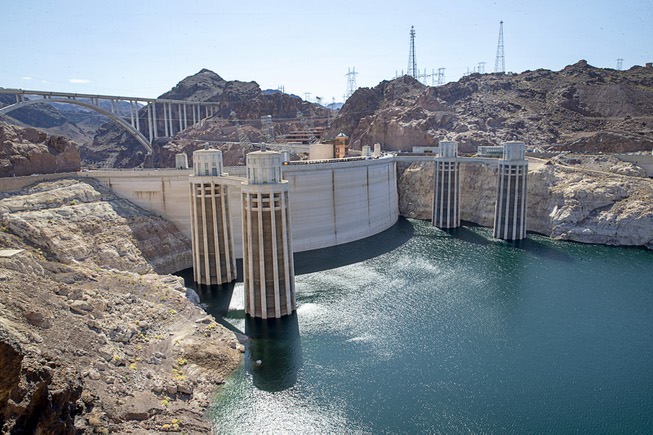Tuesday, Nov. 28, 2023 | 8:59 p.m.
The Boulder City Council on Tuesday voted to stay out of class action lawsuits against two companies accused of contaminating water with cancer-causing chemicals found in firefighting foam, citing the low level of contaminants detected in Lake Mead.
Public Water Systems launched suits against Dupont de Nemours and 3M Science for their use of per- and polyfluoroalkyl substances (PFAS) in aqueous film-forming foam, a foam used to extinguish fires fueled by flammable liquid.
In June and July 2023, the water systems launched class action lawsuits against the companies. A proposed class action settlement with 3M would total between $10 billion and $12 billion, and Dupont would pay out $1.1 billion.
“The damages in this lawsuit are largely measured by the costs of filtering, testing and monitoring of the ongoing examination of drinking water supplies,” City Attorney Brittany Walker said during a city council meeting Tuesday. “Due to the safe levels of PFAS in Boulder City’s water, it is anticipated that any claim filed at this juncture by Boulder City would yield a nominal settlement.”
According to the U.S. Environmental Protection Agency, PFAS are a category of thousands of man-made chemicals found in consumer products ranging from food packaging and nonstick cookware to electronics, stain and water repellent fabric and some cosmetics along with the foam at the center of the lawsuits. The “forever chemicals” are stable, don’t break down over time, and can travel through contaminated soil to water sources. The chemicals can also accumulate in fish later eaten by people, passing them along.
The Centers for Disease Control and Prevention states PFAS exposure can increase the risk of kidney and testicular cancer, high blood pressure and preeclampsia in pregnant women and lower birth weight in newborns.
EPA standards require public water systems serving more than 3,300 people to start testing for 29 types of PFAS as of January 1, 2023. After the new rules went into effect, the Southern Nevada Water Authority found PFAS in Lake Mead after conducting tests, but the amount was below the agency’s maximum contaminant level of 4 parts per trillion.
Southern Nevada Water Authority and other local water providers have opted out of the lawsuit because of that low number, spokesperson Bronson Mack said. SNWA will keep testing for PFAS at the lake, and at groundwater and water treatment plants.
“Because Southern Nevada has not been significantly impacted by PFAS and no official limits have been established, costs for the remediation are not yet known, as detectable levels have been below the limit being considered,” Mack said. “Therefore, there is no clearly identified financial impact at this point, but there could be in the future and we want to maintain our ability for legal action if needed.”

